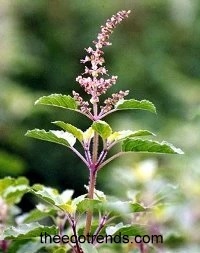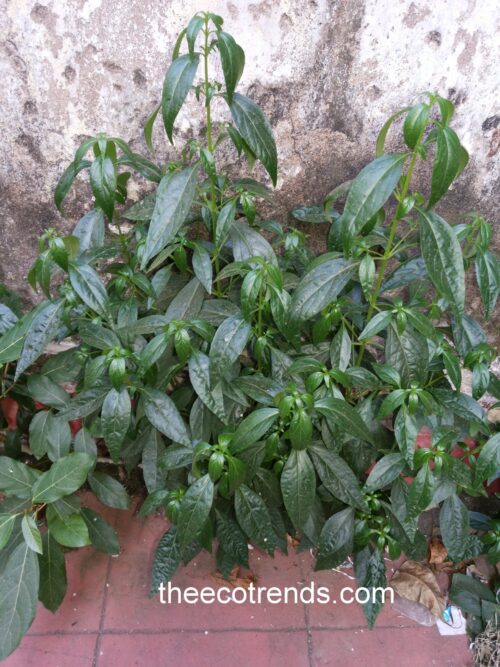In the early stages of COVID-19, when the world was in terror, and no way of treatment was seen, the public of India depended on the traditional systems of healthcare.
During this period people of India have been protecting themselves by taking herbs suggested by local herbalists and the Ministry of Ayush, Government of India. Most of the herbs used during this period are Giloy, Tulsi and Ashwagandha.
Indian people take these herbs in different forms very religiously as they fear from the conditions of the pandemic.
These herbs started disappearing from the wild due to overuse within a period of weeks. Many people planted these herbs in different flower pots.
Since the starting phase of COVID-19 till now these herbs have been protecting our health up to greater extent and the vaccine against the pandemic is still in the testing stage in different parts of the world.
A lesson that everyone should learn from the condition is that we must identify and protect our herbal resources at all costs and should also learn to propagate them wherever it is possible for us.
Let us have a brief introduction about these herbs.
Giloy or Amrita
This plant is taxonomically known as Tinospora cordifolia belonging to the family Menispermaceae. It is native to India in the tropical regions.

It is a twiner with tough stem which is round and green. It can climb up to top of a tree with many branches and green foliage.
This plant has been reported to be medicinal application since centuries.
Giloy has acquired a prominent place in the Ayurvedic system of healthcare. The intake of Giloy extract enhances immunity and protects from diseases.
It plays important role in detoxifying liver. Its application strengthens digestion and protects against vomiting and indigestion. It helps in removing respiratory tract infection and controls fever.
The Indian Ministry of Health and Family Welfare has recommended consumption of Guduchi (Tinospora cordifolia) for the management of COVID-19.
Researchers have reported that Tinospora cordifolia contains many phytochemicals like alkaloids, phytosterols, glycosides and many other chemical compounds like columbin, tinosporaside, phenile propein, palmatine, tinocordifolioside, etc.
Tulsi or Basil
Tulsi is regarded as a sacred plant in Hindu Mythology. It is worshiped by Hindus. Taxonomically it is known as Ocimum tenuiflorum syn. Ocimum sanctum. It is a perennial plant with peculiar aroma.
The plant belongs to taxonomic family Lamiaceae. It is native to India however it is cultivated in the whole country and Southeast Asia. It is cultivated for religious and medicinal purposes.

It is due to the medicinal properties of tulsi that it protects us from various types of infections. The phytochemicals and anti-oxidants found in tulsi are helpful in curing many diseases.
Taking in the extract of tulsi speeds up blood circulation and raises the level of energy in the body. Its intake is helpful in liver infections. It cures flue, respiratory infections and helps in asthma.
Some phytochemicals contains in tulsi extracts are oleanolic acid, ursolic acid, eugenol, linalool and Beta Caryophyline. The plant also contains essential oil that contains Beta Caryophyline, germacrene, and terpenes.
Some researchers have reported that extract of tulsi has anti-viral properties also. During COVID-19 tulsi is highly recommended by traditional medicinal practitioners along with Giloy and Ashwagandha.
Ashwagandha
Ashwagandha is taxonomically known as Withania somnifera. It belongs to family Solanaceae. In English it is called as Winter Cherry. It is an important medicinal plant which has been used for more than three thousand years. Many Vaidyas or herbalists call it as Indian Ginseng.

The extract of Ashwagandha contains bio-active compounds. Ashwagandha is considered very powerful herb in Ayurveda.
All the parts of this plant including leaves, roots, bark, fruits and seeds are reported to have medicinal properties. Powders of all parts of Ashwagandha are mixed to prepare medicines.
It relieves from stress, anxiety, and mental problems. Intake of Ashwagandha is reported to control high blood pressure and diabetes. It is useful in rheumatoid arthritis, autoimmune diseases and skin infections. It controls cholesterol in blood.




